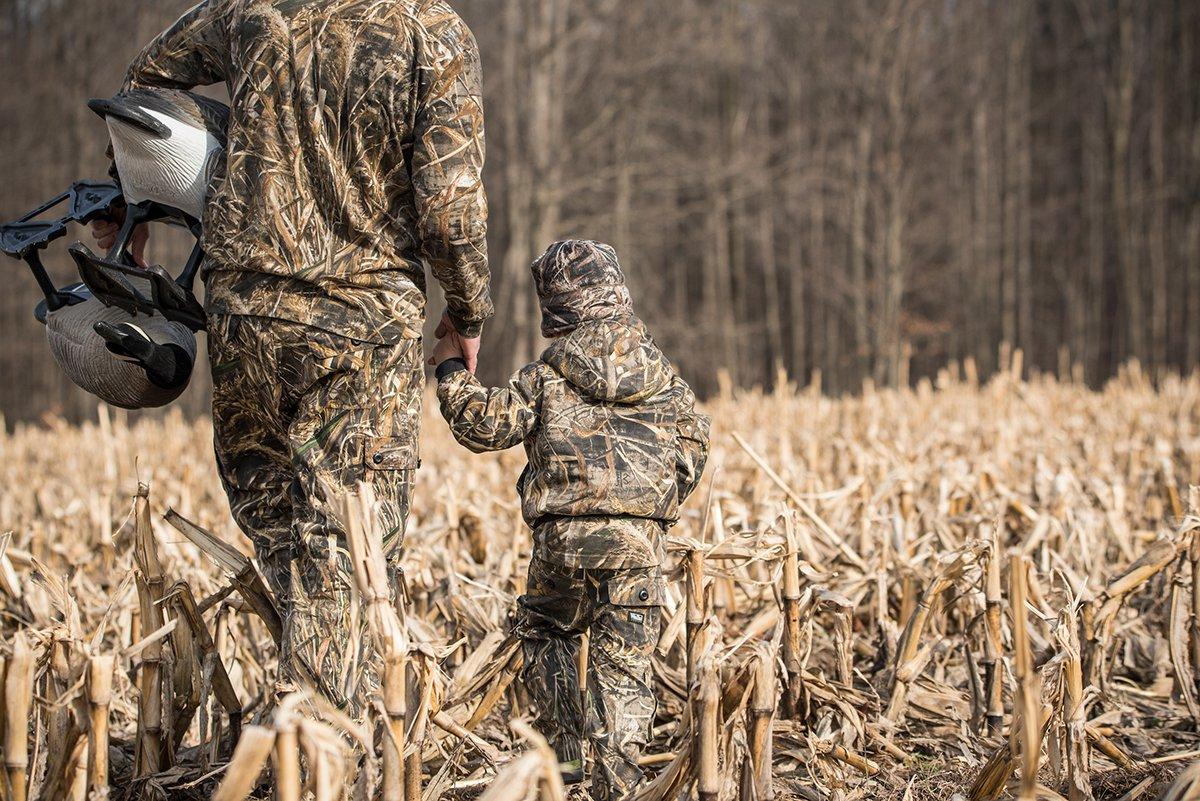Misleading Messages Might Rob Youngsters of the Real Experience
OK, admittedly, I don't play video games. And when I do, I stink at them. My nephew convinced me to try Call of Duty a few years ago, and the results were predictable. Minutes into the game, I couldn't figure out how to get my American character to climb a stone wall in France. Soon, a German had clubbed me to death. Then, my nephew cajoled me into trying the zombie version of Call of Duty. My character instantly got trapped in a staircase and was eaten 30 seconds into the match. My nephew didn't ask me to play after that.
This inexperience doesn't stop me from disliking video games that involve duck hunting, however. (Insert voice of grumpy old man: Get off my lawn!) To me, many send a misleading message that gives youngsters a skewed idea of what waterfowling really entails.
But let me back up. Video games aren't inherently evil, of course. They're simply designed for people — often young people — who crave immediate action-packed entertainment. That's fine, I guess. My buds and I ran nonstop through our backyards like hooligans while playing cowboys and Indians decades ago. Today's youngsters have more modern distractions. I could rail against the developmental and societal ills video games are accused of creating, but let's just admit that modern children and teens love video games.
The trouble with many video games — whether they involve hunting, zombies, military scenarios or even space aliens — is they let players shoot constantly at seemingly never-ending targets. Then, when the game is finished, the player can start again and resume firing round after round with little down time. It's essentially continuous action that requires no effort or planning and has no prologue or epilogue.
Contrast that experience with a day of duck hunting. It usually starts early and might involve a long drive. Then, participants have to prepare endless gear, take a frigid boat ride or hustle for an hour to place hundreds of field decoys. And of course, none of that happens without countless hours of windshield time and further scouting during previous days.
When shooting time arrives, action can be fast — even video-game fast. And honestly, during some hunts, the video-esque action can last until hunters have filled their legal limits. But in many hunts, it inevitably slows, and folks must endure long minutes or even hours with no opportunities.
After the hunt, successful or otherwise, more work awaits. You must pick up all those decoys you set out, and then endure another cold boat ride or long walk to the truck. Oh, and when you get home — tired and hungry — you'll have further responsibilities, such as cleaning ducks and your firearm. In addition, if you want to hunt the next day, the scouting road calls.
There's no quitting the game for another distraction. You'll find no reset buttons when the action slows or work beckons. Basically, duck hunting — even the easiest, most successful hunts — requires some level of commitment, discipline and work.
So naturally, when a child or teen accustomed to the video lifestyle tags along on a real duck hunt, they might be surprised. That gunning action — even the melt-your-barrel stuff — is only a small aspect of the overall experience, much like a long touchdown pass highlight is just one of roughly 100-some plays in a football game.
Which brings me to my point (I knew you wondered if I'd get there): I worry that youngsters who delight in the instant-gratification video lifestyle will find real waterfowling boring. Certainly, children brought up in hunting families and with the outdoors lifestyle learn early what it means to truly go afield and hunt. But many youths nowadays don't have that luxury. They might think duck hunting looks and sounds cool, but their impression of an honest day in the marsh might be starkly different than the flashing images and quick thrills presented by video games. And if the real thing bores them, they won't continue duck hunting, and we'll lose many potential converts to our ranks.
Solutions exist, of course. We should vow to introduce children and newcomers to duck hunting (or any hunting) whenever possible. During those trips, we should emphasize the appeal of the entire experience — canoeing along a stream, setting decoys with care, working with a trained retriever and appreciating any birds we shoot. And if it seems appropriate, we might point out the differences between video fantasies and real hunting. If nothing else, that might give someone an appreciation of why waterfowlers go to such lengths to pursue their lifestyle. Perhaps, the thrill and mystery of real duck and goose hunting will seduce many of those newcomers, just as it hooked us years ago.
OK, rant finished. Thanks for reading. I'm going to look for ducks, because all this talk of shooting bird after bird has me anxious for next season. I just hope no Germans with clubs are lurking nearby.
Click here for more Realtree waterfowl hunting content. And check us out on Facebook.







